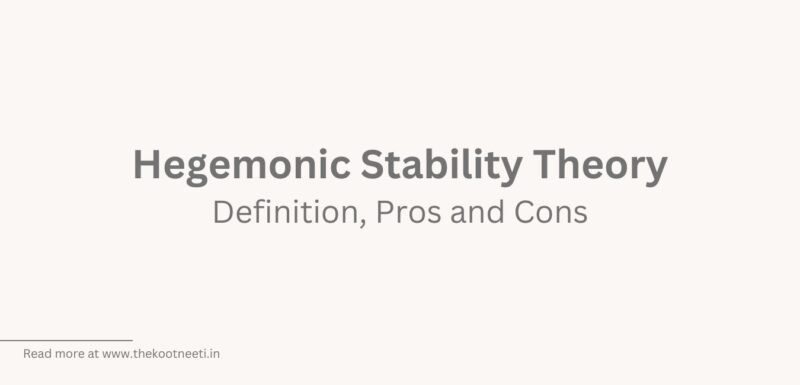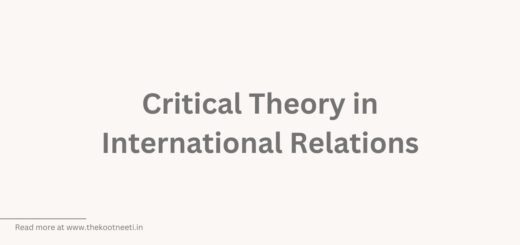Hegemonic Stability Theory: Definition, Pros and Cons

Hegemony in international relations refers to the dominance or leadership of one state or group of states over others. Hegemony can be economic, military, or cultural in nature, and can be exercised through a variety of means, including economic coercion, military force, and ideological influence.
Hegemony can have both positive and negative impacts on international relations. On the one hand, hegemony can lead to stability and cooperation, as the dominant state or group of states can provide leadership and set rules and norms for the international system. On the other hand, hegemony can also be controversial, as it can lead to imbalances of power and the suppression of the interests and autonomy of other states.
The concept of hegemony has been influential in the study of international relations, and has been used to understand the distribution of power and influence in the international system, as well as the dynamics of global politics and cooperation.
Hegemonic stability theory
Hegemonic stability theory is a theory in international relations that explains the role of dominant or hegemonic states in shaping the international system and maintaining international order. According to hegemonic stability theory, the international system is more stable and cooperative when there is a dominant or hegemonic state that is able to provide leadership and set rules and norms for the system.
Hegemonic stability theory suggests that the presence of a dominant state can create a sense of predictability and stability in the international system, as other states can rely on the dominant state to provide leadership and to address global challenges. This can lead to greater cooperation and collaboration among states, as well as a more orderly and stable international system.
However, hegemonic stability theory also acknowledges that the dominance of a single state can be controversial and can lead to resentment and resistance from other states. It can also be challenged by the rise of new powers or the decline of the dominant state. As a result, the stability of the international system may be dependent on the ability of the dominant state to maintain its leadership and to address the concerns of other states.
Pros and Cons
Pros:
- Promotes cooperation and stability: The presence of a hegemon can help to promote cooperation and stability among states, as the hegemon is able to provide a set of rules and norms for the international system and is able to enforce those rules through its dominant power.
- Provides public goods: A hegemon is able to provide public goods, such as security and economic stability, to the rest of the international community, which can benefit all states.
- Can prevent the emergence of new hegemons: The dominance of a hegemon can prevent the emergence of new hegemons and help to maintain the existing balance of power.
Cons:
- Can lead to exploitation: The hegemon may use its dominant power to exploit other states and further its own interests, rather than acting in the best interests of the international community.
- Can create resentment: The dominance of a hegemon can create resentment among other states, which may lead to conflicts or challenges to the hegemon’s power.
- May be unstable: The dominance of a hegemon may be unstable, as other states may seek to challenge the hegemon’s power and a new hegemon may emerge to take its place.
Overall, hegemonic stability theory suggests that the presence of a hegemon can promote cooperation and stability in the international system, but it also has the potential to create conflicts and tensions.


















